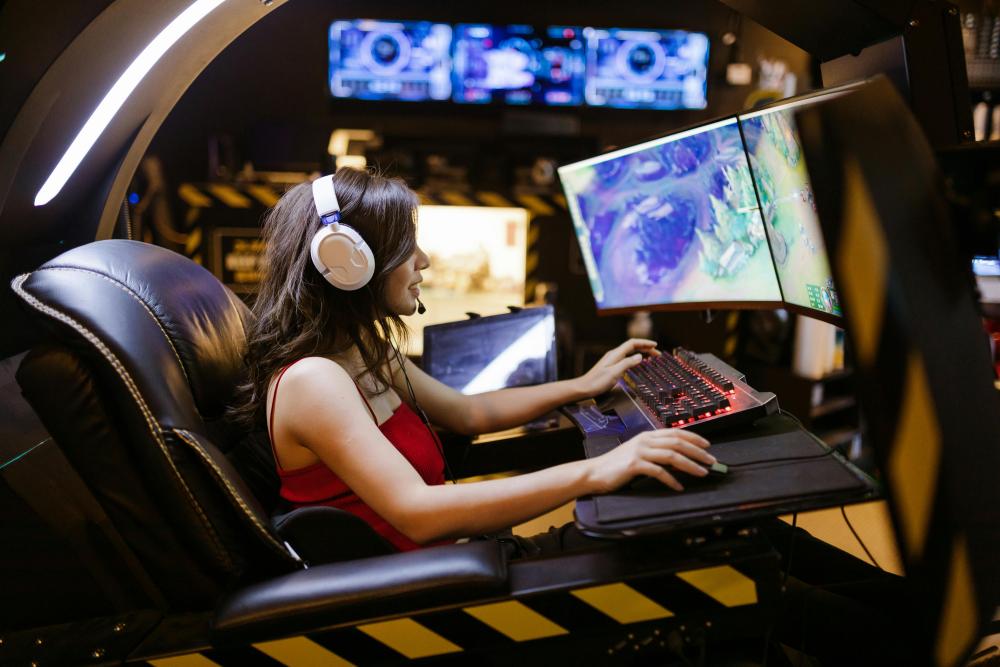Many people seek ways to cope with stress. Gaming provides an engaging and immersive escape from daily life. Whether you’re battling foes, exploring vast landscapes, or engaging in creative endeavors, video games can positively influence mental well-being. By understanding how gaming can serve as a therapeutic outlet, players can harness its benefits to combat stress and improve their quality of life.
How Top-Up Can Elevate Gaming Experiences
For gamers, resources are everything. Implementing a top-up strategy enables players to acquire better weapons. Better gameplay reduces in-game stress when players have access to superior equipment. Many players turn to top-ups for quick boosts to advance in their gaming journeys, so they can build the most effective characters. In games like Genshin Impact, players can take a look at Flins build strategies for competitive play or other upcoming characters and use the acquired resources on them. Access to increased resources can alleviate frustrations and create a sense of accomplishment and satisfaction. Implementing a solid top-up strategy allows players to engage more meaningfully in their gaming pursuits and lower stress.
Immersive Distraction From Reality
Gaming can transport players into richly crafted worlds, offering a refreshing distraction from real-life stressors. Players can temporarily forget their worries and invest their focus and energy into the gameplay experience. Spending time in a virtual environment can create feelings of calmness and satisfaction as players become engrossed in quests, challenges, and victories.
When engaged in gaming, players are required to solve puzzles or strategize, providing a break from negative thoughts and an avenue for mental engagement. Players feel recharged after gaming sessions, making it an effective outlet for relieving tension and anxiety.
Social Connection Through Online Communities
Thanks to multiplayer games, players can collaborate, compete, and communicate with others across the globe. These interactions can maintain mental health. Playing alongside friends or even strangers in cooperative settings helps people feel valued and connected. Engaging in multiplayer scenarios requires teamwork and improves communication and trust among players.
The social interaction that comes with gaming will decrease feelings of isolation and improve mood. By connecting with others through gaming, players can alleviate their stress and build lasting relationships that extend outside the gaming world.
Problem-Solving Skills
Most games challenge players with complex scenarios that require critical thinking and strategy. Engaging with these puzzles can improve players’ problem-solving skills, which can be empowering and beneficial in everyday life. As players work through challenges, they develop resilience and adaptability, learning how to approach problems with different strategies. This gaming experience can translate to improved stress management in real-world situations. The thought processes cultivated during gaming can help individuals handle work-related challenges more confidently.
Player feedback loops reinforce the idea that perseverance will be rewarded. The sense of accomplishment felt after overcoming difficult tasks in games can result in increased self-esteem. Players find joy in gaming and emerge with valuable skills that improve their daily coping mechanisms.
Creative Outlet
Not all games require action: many offer creative modes that allow players to express themselves artistically. Game titles like Minecraft or The Sims provide vast tools and environments where users can create their own worlds, stories, and experiences. When developers focus on something new or recreating familiar environments, individuals redirect their energies into constructive activities.
Engaging in artistic endeavors through gaming has been linked to reduced anxiety and improved mental health. The fulfillment found in creation calms and inspires personal growth, making gaming a tool for stress relief.
Physical Coordination and Reaction Time
Many think of gaming as a sedentary activity, but certain genres require physical engagement and improve motor skills. Action games can improve hand-eye coordination and reaction times. This aspect of gaming can serve as a different type of distraction from stress. Engaging with fast-paced environments requires players to remain alert and responsive, which challenges and sharpens their reflexes.
Active gaming can contribute to physical fitness and encourage users to be more active outside of the virtual world. Thanks to its physical well-being and mental engagement, gaming can create a holistic approach to stress relief.
Focus and Concentration
Games require sustained focus and concentration, challenging players to hone these skills. Higher concentration can have positive repercussions in daily life, helping individuals manage tasks and responsibilities more effectively. Engaging in complex narratives or intricate gameplay demands that players maintain attention, improving their ability to concentrate.
Individuals playing action games exhibit faster information processing speeds and better attentional skills. By actively training their minds through gaming, individuals can reduce stress by feeling more capable of managing their daily routines. These improved skills improve gaming performance, and they make everyday challenges much more manageable.
Gaming can be a valuable outlet for stress relief. Through immersive distractions, social connections, and the development of critical skills, players can use gaming to boost their mental well-being. Engaging in creative pursuits and improving physical coordination further contribute to stress management. The therapeutic benefits of gaming hold promise for countless individuals seeking a productive means of dealing with stress.
Want to learn more tips and tricks for loving your life?
Snag a free workbook and get inspiration on all the ways to love your life even more.
>>Click Here to Discover Additional Articles on Strategies to Falling in Love with Your Life <<









